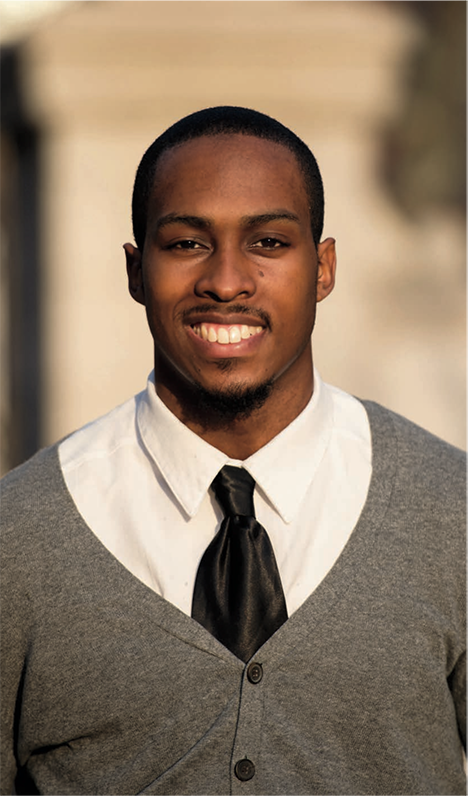Jordan Williams

Jordan Williams has been playing piano since he was seven and performing since he was 11. He is a jazz musician who didn’t want to have to abandon his music when he started college, but didn’t want to major in it either. He wanted to study engineering instead. At GW, he found his opportunity to be both an engineer and a musician.
“I received a GW Presidential Scholarship in the Arts, which gave me the opportunity to minor in music, instead of majoring in it, so I could major in what I wanted,” Jordan explains. “That’s one of the things that definitely attracted me to GW.”
Jordan decided to study biomedical engineering because he thought it would give him “the most direct way to help people.” Wanting to pursue his major beyond the classroom, he took a volunteer summer internship at the Veterans’ Administration (VA) Medical Center in Philadelphia after his sophomore year. At the VA Center, he assisted biotechnicians in the lab and learned how to troubleshoot and calibrate some of the lab’s equipment.
The summer after his junior year, he participated in the SEAS Summer Undergraduate Program in Engineering Research, helping with research in Dr. Michael Plesniak’s Bio-fluid Dynamics Lab. He helped run simulation experiments in the lab and developed a research abstract that subsequently was accepted into the annual SEAS Student Research and Development Showcase.
As he reflects on his various activities at GW, Jordan muses, “I think I’ve learned so much from every opportunity I’ve had at GW. I learned a lot from my classes, and I’m especially grateful for the chance to work in a lab.”
Jordan also has been involved in outside activities such as National Society of Black Engineers initiatives and, most especially, a variety of music programs and performances. During college he has continued to perform professionally—and in some very impressive venues. He has given various concerts in GW’s music department and was invited to open for Ravi Coltrane (son of John Coltrane, a world-renowned jazz saxophone player) Brenna Marcoux at GW’s Lisner Auditorium.
Last year, he was one of 24 young musicians invited to participate in a two-week international jazz residency at the Kennedy Center. The program included master classes taught by some of the world’s top jazz musicians, and the chance to have some of his original compositions critiqued by them. At the end of the program, Jordan and the other young musicians gave performances at both the Kennedy Center and the Apollo Theater. The chance to learn from some of the artists he grew up listening to was a dream come true for him.
As Jordan prepares to graduate, he remains committed to his music, planning to be an engineer by day and a jazz pianist by night.
“I’m continuing to practice and be the best musician I can be,” he says. “Fortunately, you can be very well known as a jazz musician and still pursueyour dream of helping others through biomedical engineering.”

